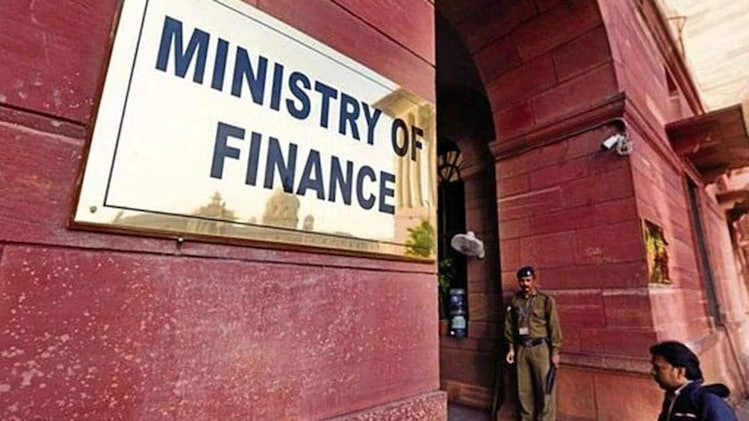FinMin Directs Financial Institutions: In a strong move aimed at tightening public finances and promoting responsible spending, the Ministry of Finance has issued an advisory to all financial institutions — including the Reserve Bank of India (RBI) and other public sector banks — instructing them to stop spending on festival gifts and non-essential expenses ahead of Diwali. The directive underscores the government’s broader goal of fiscal prudence, efficient use of public money, and ensuring that state-run entities align with the principles of economic discipline during the festive season.
The advisory, based on a communication from the Department of Public Enterprises (DPE), was circulated by the Department of Financial Services (DFS) to all financial institutions under its administrative control. It explicitly states that no expenditure should be incurred on gifts and related items for Diwali or any other festivals by ministries, departments, or government-controlled organisations.
Officials said the move is intended not just to rein in unnecessary spending but also to set an example of responsible governance at a time when the government is focusing on fiscal consolidation while simultaneously trying to boost consumption in the private sector.
Push for Responsible Spending Comes Amid Drive to Boost Consumption
Interestingly, the advisory comes even as the government is actively encouraging consumer spending by households, particularly the middle class, to support economic growth. In the Union Budget 2025-26, several tax relief measures were introduced to put more disposable income in the hands of consumers.
Additionally, through the next-generation GST 2.0 reforms, the government has slashed GST on nearly 375 items, with the reduced rates taking effect from September 22. The move is expected to make a range of goods more affordable, particularly during the festive season, thereby stimulating demand.
GST 2.0 and Tax Cuts to Add ₹2.2 Lakh Crore to GDP
The fiscal tightening measures for public entities run parallel to broader economic strategies designed to accelerate growth. According to government estimates, the combined impact of income tax relief and GST 2.0 reforms is expected to add around ₹2.2 lakh crore to India’s GDP, which is now approaching the USD 4 trillion mark.
Officials say that increased consumer spending, coupled with lower indirect taxes, will not only boost demand but also help cushion the impact of external economic pressures — particularly the 50% tariff imposed by the U.S. administration last month on Indian exports.
To further promote awareness and adoption of the GST reforms, the government has also launched a nationwide campaign — GST Bachat Utsav — highlighting how lower tax rates can benefit consumers and businesses alike.
Read about: Wall Street Is Reframing Climate Finance as an Energy Security Imperative
Public Sector Institutions: A Major Driver of Demand
One of the key reasons behind the finance ministry’s advisory is the significant role that government-run institutions and Central Public Sector Enterprises (CPSEs) play in India’s economy. These entities are among the largest consumers of goods and services and have substantial influence on market demand, particularly during the festive season.
However, the ministry has noted a “prevailing practice” of spending public funds on gifts and other non-essential expenses during Diwali and other festivals — a trend it now wants to put an end to.
CPSEs and PSBs Told to Avoid “Freebie Culture”
The finance ministry’s directive is part of a larger effort to discourage the “freebie culture” in state-run organisations. The DPE advisory clearly states that public money should not be used for gifting, promotional giveaways, or festival-related perks — a practice observed in several CPSEs and financial institutions over the years.
The DFS has also instructed all entities under its purview — including public sector banks (PSBs), insurance companies, financial development institutions, and regulatory bodies — to strictly adhere to the directive and report compliance.
This is in line with broader government policy shifts aimed at reducing non-essential expenditure and reallocating public resources towards high-priority sectors like infrastructure, health, and social welfare.

Balancing Fiscal Prudence with Growth
The latest advisory reflects a nuanced approach by the government — balancing the need for fiscal discipline in the public sector with policies aimed at stimulating demand in the private sector. While public institutions are being asked to cut down on unnecessary spending, the government is simultaneously pursuing policies to put more money in the hands of consumers and businesses.
Economists say this dual-track approach could have multiple benefits. First, it will ensure that public funds are directed towards productive investments rather than symbolic spending. Second, it sets an example for private enterprises to adopt more efficient spending practices. And finally, it helps contain fiscal deficits, a key macroeconomic goal as India aims to maintain growth momentum amid global economic uncertainty.
Conclusion: A Shift Toward Sensible Spending and Sustainable Growth
The Finance Ministry’s directive to halt spending on festival gifts by government institutions marks a significant shift in India’s approach to fiscal management. At a time when public spending is under intense scrutiny and the government is juggling competing priorities — from stimulating consumption to managing external trade shocks — the emphasis on fiscal prudence sends a strong message about the need for responsible use of taxpayer money.
This move also reflects the government’s evolving fiscal philosophy: encouraging private sector-led demand growth while ensuring that public expenditure remains focused on areas with tangible economic returns. Rather than indulging in symbolic gestures, ministries and CPSEs are being urged to redirect funds towards more impactful initiatives, such as infrastructure investment, digital public services, and social welfare programs.
In the long run, such measures could strengthen macroeconomic stability, reduce fiscal deficits, and help the government maintain its commitment to sustainable growth — even in a challenging global environment. By curbing wasteful expenditures and promoting accountability, the public sector can lead by example, reinforcing confidence in India’s fiscal policy framework.
Moreover, this move may signal a broader cultural shift in governance — one that prioritises value over vanity, substance over symbolism, and long-term economic health over short-term optics. It is a reminder that fiscal discipline is not just about cutting costs but about spending smartly and purposefully to drive national progress.
FAQs: FinMin Advisory on Festival Expenditure
1. Why has the Finance Ministry issued an advisory against festival gifts?
The advisory is part of a broader effort to ensure fiscal prudence and responsible use of public funds. The government wants ministries, departments, and public sector institutions to avoid unnecessary expenditures — such as festival gifts — and instead focus their financial resources on high-priority areas like infrastructure, social welfare, and development projects.
2. Does this advisory apply to private companies or only government institutions?
The directive is specifically aimed at government departments, ministries, and institutions under the administrative control of the Department of Financial Services (DFS), including public sector banks, insurance companies, and CPSEs. Private companies are not bound by this advisory, though they may adopt similar practices voluntarily.
3. How does this move align with the government’s efforts to boost consumption?
While the government wants households to increase spending to boost demand, it also wants public sector entities to demonstrate financial discipline. The aim is to channel taxpayer money into productive investments rather than non-essential expenses while encouraging private consumption through tax relief and GST cuts.
4. What is GST 2.0 and how does it relate to this advisory?
GST 2.0 refers to a series of reforms that simplify the tax system and reduce rates on nearly 375 items. By lowering GST, the government is making goods more affordable and boosting consumption. The advisory complements this by ensuring that public institutions contribute to fiscal stability while the private sector drives demand.
5. What could be the long-term impact of curbing such non-essential expenses?
In the long term, reducing non-essential expenditures like festival gifts helps strengthen fiscal discipline, lowers the fiscal deficit, and ensures public money is spent more effectively. It also builds public trust in government institutions and sets a precedent for responsible financial governance — crucial as India works toward becoming a $5 trillion economy.

m3tb2y